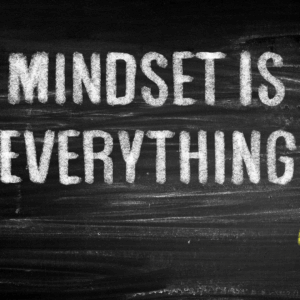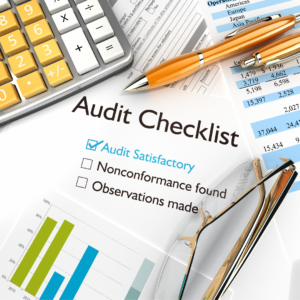Credit Card Mistakes to Avoid for Improving Your Financial Status and Saving Money Effectively.
In today’s world, credit cards have become indispensable for managing our finances. They offer convenience, flexibility, and rewards that can help improve our financial well-being.
But if not used responsibly, credit cards can lead to financial pitfalls.
Credit Card Mistakes to Avoid
Maxing Out Your Credit Limit
One of the most detrimental mistakes you can make with your credit card is maxing out your credit limit. This can have severe repercussions. It damages your credit score and signals to lenders that you heavily rely on credit and may struggle with debt management.
This can affect your ability to qualify for loans or secure better interest rates in the future, potentially impacting your financial stability.
Not Paying On Time
Missing even one payment can significantly damage your credit. It will be a factor in your credit history.
You could be charged a late fee if you pay your credit card bill even a single day after the due date. Not only that, but it may also increase your interest rate.
It often means resetting your interest rate to a penalty rate or default rate. Penalties (APRs) can be as high as 29.99%, significantly raising the interest you pay on your outstanding balance.
It serves as a reminder of the importance of making timely payments and the potential consequences of neglecting them.
Carrying A Balance And Paying Only The Minimum
Another mistake to avoid is carrying a balance on your credit card and paying the minimum amount due each month. It may seem like an easy way to manage your debt, but it can keep you trapped in a cycle of high-interest charges.
By paying only the minimum, you’ll stay in debt longer. The debt is always there, and paying off the entire balance becomes a burden, which also affects your credit score.
You’ll get nowhere if you’re paying the minimum. It’s one mistake you should avoid.
Applying For Multiple Credit Cards
Opening multiple credit cards quickly can negatively impact your credit score. Each credit card application triggers a hard inquiry on your credit report. These inquiries temporarily lower your FICO scores.
Your FICO Score is a three-digit number (ranging from 300 to 850) that helps lenders predict your likelihood of repaying borrowed money.
The higher your score, the more trustworthy you appear to lenders, which can result in better interest rates, higher credit limits, and easier approval.
Frequent applications may seem a desperate attempt to acquire credit from card issuers. This perception decreases your odds of approval. To avoid this, wait between applications.
If you have a good to excellent credit score, wait at least six months between applications. This way, you can maintain a healthy credit score and increase your chances of approval.
Ignoring Interest Rates
Ignoring credit card interest rates can significantly impact your financial well-being. This is why it is important to be knowledgeable and proactive about your finances.
Credit card interest rates are often much higher than other forms of borrowing (such as mortgages or car loans).
If you carry a balance on your card, you’ll earn interest daily on the unpaid portion of your debt. Ignoring these rates will result in higher purchase costs over time.
If you carry a balance from month to month, you’ll pay interest on top of interest.
Prioritize paying off your credit card balance in full each month during the grace period to avoid interest charges.
Being mindful of interest rates helps you manage your finances effectively and avoid unnecessary expenses.
Closing Old Credit Card Accounts
Closing old credit card accounts can impact your credit score by reducing the average length of your credit history.
Keep old accounts open, even if they are not actively used. If you’re paying an annual fee for a card you don’t use, closing it down saves you money.
Overspending
Credit cards can create a false sense of financial security, leading to overspending and debt accumulation.
It is essential to stick to a budget and use credit responsibly, charging only what can be comfortably paid off each month.
Card Offers
Introductory offers, such as zero-interest balance transfers or rewards programs, can be enticing. However, it’s essential to read the terms carefully, including any fees or interest rates that may apply after the introductory period.
Using Cash Advances
Cash advances are expensive due to their high interest costs. Unlike regular credit card purchases that offer a grace period, cash advances accrue interest immediately until the amount is fully repaid.
Using cash advances instead of building an emergency fund can put you in a cycle of continuous overspending and debt. Relying on them too frequently may lead to long-term financial difficulties.
Neglecting To Build An Emergency Fund
The Emergency Fund provides financial security by acting as a safety net for unexpected expenses. It’s a better strategy to handle unforeseen costs without incurring high fees and interest.
Relying solely on credit cards for emergencies without an emergency fund can lead to increased debt and financial instability. It’s essential to have a savings account to cover unexpected expenses.
Co-Signing Without Caution
Co-signing for someone else’s credit card or being a joint account holder can have profound implications. Both parties are responsible for the debt; any missed payments can impact both credit scores.
Avoiding these credit card mistakes requires financial awareness and responsible credit management.
You can avoid these mistakes by paying your bills on time, keeping your credit card balances low, and avoiding debt that could strain your budget.
By using credit cards wisely, you can leverage their benefits without falling into common pitfalls that can lead to financial stress.
Check out this article:https://masteringpersonalfinances.com/practical-tips-for-better-money-management/





